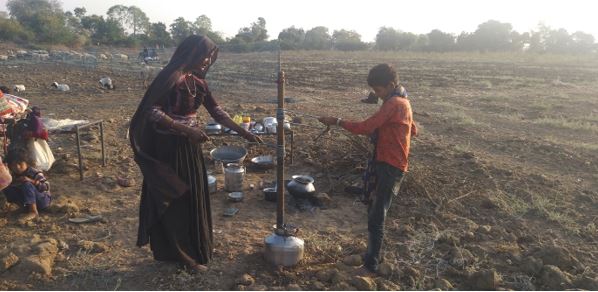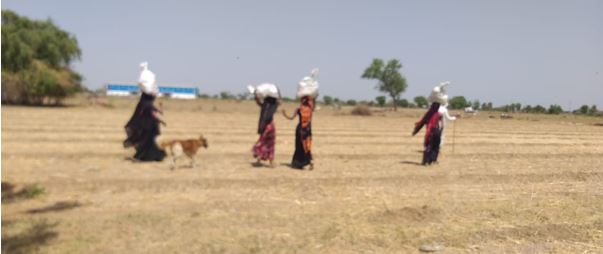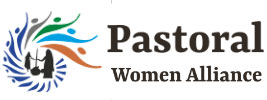
Life is unpredictable but when it comes to poor, marginalized and pastorals (maldhari), especially women, it becomes harsher and tough both. Maldhari community commutes between districts and state in search of grazing lands for its livestock for centuries, had not faced hindrance in the way they are facing now, these days they are stranded in several states. Coronavirus threat has halted the wheels of centuries old tradition and made the lives of pastorals more fragile, vulnerable, and difficult. In addition, the issues of pastorals remained missing from mainstream media, as happens with many marginalized and minority community. No uproar is heard in the context.
Pastoralists are migratory livestock keepers who migrate for up to nine months in search of fodder and water. They migrate with their families with minimal belongings needed to sustain them on road. In a normal monsoon year, the migration starts after Diwali in October and return journey starts in June/July after the onset of rains. The lockdown due to corona pandemic has severely affected these nomadic herders, particularly women. As they have to play crucial role while on move.
Plight of Women
Change in Migration Routes
COVID 19 has impacted on the migration pattern of maldharis. They have to take new routes due to various reasons: one, due to lockdown the movement was restricted. Two, the farmers who used to invite them were hesitant to invite with the fear. Three, there was an underlying stigma that maldharis and their livestock are the carrier of corona virus. Four, the villagers have restricted their entry in the villages.
While this was uncomforting for all, but it was particularly difficult for women, as their role is to negotiate with the villagers for water, ration, selling milk in the village, etc. To perform these task in newer places has left them with uncertainties, uncomfortness and many a times feeling of insecurity.
Villagers also started prohibiting the Maldhari’s to draw water from water resources. Since, this is women’s responsibility, they have devastating experience to fetch water for the household needs and the needs of livestock.
Obstruction in Selling of Milk and Milk Product
While on migration they depend on daily earnings from milk and milk products such as ghee and mawa, wool, manure, and from selling livestock. The fear and uncertainty around COVID -19 has substantially affected the milk and other products.
Maldharis sell the milk in the dairy cooperative and to the private contractors, but with newer routes, they were not familiar with the dairies and also the private contractors. Thus, the burden of selling the milk comes on women. It was found that in many cases, they have to sell their milk & milk products in very low price. To quote an example, where they used to get the rate of 40 Rs per litre of milk, due to lockdown they have to sell at Rs 22 per litre.
This have ruined the pastorals financially and socially both. The misery of the situation not stopped here only in some places villagers threatened to drive out their territories forcefully resulted into exchange of intense argument and minor scuffle.
The trading of livestock
The trading of livestock is completely impeded. This has major loss for the maldharis. The financial loss majorly impacts women, as the migrating maldhari women has the control over financial resources and the responsibility of managing the resources also comes to them.
Difficult to get Food items
Since they are away from native villages, they don’t have access to ration from the PDS shops in the areas where they migrate. While it was okay otherwise, but due to loss of income in this period, they are in huge financial crisis. This is rare for maldhari families. It is a shock that they are not able to buy enough food. A woman from Kutch says “Our need for chapati is 20 per meal, but we are making only 10 chapatis these days. This is to ensure that the ration last for longer time.” This has a major impact on the health of women in the group.
Some groups have reported to buy food items in higher price and women have to walk for long distance to get it. Thus, their drudgery and stress levels have increased.
Shearing the sheep
Sheep needs shearing during summer time. The livestock traders generally help maldharis to get the person for shearing. But, this time since there were no traders, the shearing has to be done by the family itself, or else they have to pay for it.
Increasing price of Cattle Feed
The price of cattle feed, grasses have seen an upsurge. This was a toll for the family.
Missing their Children at Home
While migration some of children stayed at home for study or taking care of grandparents, because of lockdown they are not able to see their children for long time.
Government scheme or COVID package is NOT in favour of maldharis
During lockdown, the Central government as well as state government have announced schemes to support various groups, however, there was nothing in favour of maldharis and the women.
Looking at the situation with migrating women Pastoral Women Alliance has given ration kit to 100 women.
Recommendations
We request Government of India to frame special guidelines for the government administration so that the livestock keepers could be helped. Categorically, we urge state governments and the national government to take following steps:
- Administration pay attention to Maldhari community, especially, so that they survive COVID 19, especially being away from their families and villages/states.
- The rations, medicines and other necessary items are made available to the maldharis, at the place where they are stuck, irrespective of the possession of ration cards.
- The linkage of pregnant and lactating women and adolescent girls with the anganwari centers, on the way, should be ensured.
- The grasses, cattle feed, water are arranged near the vicinity of their stay
- The cost of grasses and cattle feed are regulated by the governments
- The increasing conflict with the locals calls for the safety provisions, necessary steps to be taken in this regard.



